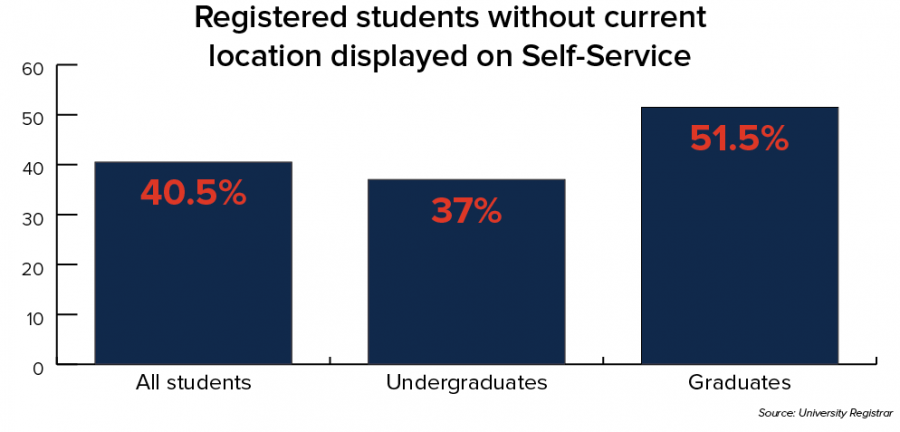With internet cuts, UI aims for “less disciplinary” approach to testing noncompliance
Feb 1, 2021
University students in non-compliance with regular COVID-19 testing and minor infractions can face short-term loss of access to University Wi-Fi, Zoom and learning management systems this semester.
The new consequences aim to be “less disciplinary and more focused,” said Justin Brown, associate dean of students.
“It’s certainly better than potentially being immediately suspended from the University and being unable to attend your classes for months, rather than for the day or so it takes to get a test,” Brown said.
Access loss focuses on run-of-the mill things, like testing and keeping student location updated, but not throwing a party, he said.
“Limiting access was an additional tool to ‘nudge’ students into compliance,” Associate Vice Chancellor for Student Affairs Stephen Bryan said in an email.
Get The Daily Illini in your inbox!
He also said the amount of time of testing avoidance that will result in loss of internet access is still being determined, and that “a robust educational campaign so students are aware” will be implemented soon.
Concerns about variants of the coronavirus within the community led the University to promote students’ commitment to testing, Bryan said.
All students in the campus community need to test in order to keep up with safety models and procedures, Brown said.
“Given they don’t need building access, if they’re enrolled students and in the community, then presumably, they do need access to these other systems,” he said.
A University Massmail first sent to students on Jan. 20 emphasized in bold how students out of compliance could lose access to internet use. It was repeated in a separate Massmail sent to students on Jan. 26.
The possibility of limited access received mixed student responses.
Yunuen Reyes Vera, senior in LAS, said she initially thought it was extreme, but at the same time understandable.
Siti Fathimah, graduate student in LAS, said she doesn’t see the problem.
“Following the protocols, it’s not that hard. Wearing masks is not that hard. It’s an easy thing,” Fathimah said.
However, Ryan Greenwalt, a senior in Business, said it was too heavy-handed.
“Keeping people from going to class seems like a pretty severe consequence,” he said. “I would certainly hope the system comes with warnings and that isn’t the first response to people caught violating COVID protocols.”
Brown said for low-level, first-time infractions, students will usually receive a warning email rather than face serious disciplinary action.
Additionally, consequences apply to students who live off-campus because “everything COVID affects the University’s interests,” Brown said.
Not updating student location through self-service may also result in access loss this semester. According to University registrar Meghan Hazen, 40.5% of all registered students haven’t inputted a student location or have a housing contract, as of Jan. 28.
Thirty-seven percent of undergraduates and 51.5% of graduate students have no location address or housing contract, Hazen said in an email.
“I could charge all of them (with non-compliance) tomorrow,” Brown said. “We have to have that information.”
Overall, Brown said it’s very easy to avoid these consequences and that he believes this is an effective strategy by the University.
“I certainly think it’ll be more effective than pure disciplinary action and more immediate,” he said. “It’s not the same thing as being suspended or dismissed, which has long-term consequences … It’s really just until you’re back in compliance.”
Reyes Vera said her stance on the consequences changed after hearing that access loss was for minor infractions such as not regularly testing.
“If people are going to flagrantly disobey the rules, then I mean, we are in a pandemic, people should be obeying them,” she said.






